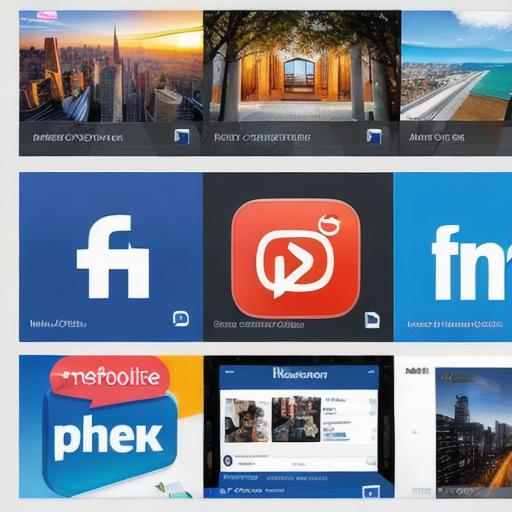As a real estate agent, you know how important it is to market your properties effectively to attract more clients and close more deals. With the rise of digital marketing tools, there are now more options than ever before for reaching potential buyers and sellers. In this article, we will explore some of the best marketing tools for real estate agents and provide tips on how to use them effectively to boost your business.
- Social Media Marketing
One of the most popular marketing tools for real estate agents is social media. With platforms like Facebook, Instagram, and Twitter, you can reach millions of potential buyers and sellers every day. Here are some tips on how to use social media effectively:
- Create a professional profile on each platform and post regularly about your properties, market trends, and local events.
- Use high-quality photos and videos to showcase your properties and engage with your audience.
- Join relevant groups and communities where real estate agents are active and participate in discussions.
- Run social media ads targeting specific demographics to reach a wider audience.
Case Study: John Smith is a real estate agent who has successfully used social media marketing to increase his client base. He creates engaging posts about properties, market trends, and local events, which attract potential buyers and sellers to his page. He also runs ads targeting specific demographics and has seen a significant increase in leads as a result.
- Email Marketing
Email marketing is another effective tool for real estate agents. With tools like Mailchimp and Constant Contact, you can easily create and send email campaigns to your subscribers, promoting your properties and market trends. Here are some tips on how to use email marketing effectively:
- Build a list of potential buyers and sellers by offering incentives such as exclusive property listings or market updates.
- Create personalized emails that address the recipient’s needs and interests.
- Use eye-catching subject lines and clear calls-to-action to encourage engagement.
- Track open and click-through rates to measure the effectiveness of your campaigns and adjust your strategy accordingly.
Case Study: Sarah Johnson is a real estate agent who uses email marketing to promote her properties and market updates to her subscribers. She creates personalized emails that address the recipient’s needs and interests, which leads to higher engagement rates and more deals.
- Video Marketing
Video marketing is a powerful tool for real estate agents, as it allows you to showcase your properties in a dynamic and engaging way. Here are some tips on how to use video marketing effectively:
- Create high-quality videos that highlight the features and benefits of your properties.
- Use virtual tours, walkthroughs, and drone footage to provide a unique perspective for potential buyers and sellers.
- Share your videos on social media platforms and embed them on your website to increase visibility.
- Use video marketing tools like Animoto and Powtoon to create professional-looking videos with minimal effort.
Case Study: Michael Lee is a real estate agent who uses video marketing to showcase his properties in a dynamic and engaging way. He creates high-quality videos that highlight the features and benefits of his properties, which attract potential buyers and sellers to his website and social media pages.
- Search Engine Optimization (SEO)
Search engine optimization (SEO) is a crucial tool for real estate agents who want to improve their visibility in search engine results pages (SERPs). Here are some tips on how to use SEO effectively:

- Use relevant keywords and phrases in your website’s content, titles, and meta descriptions to improve your search engine rankings.
- Optimize your website’s speed and mobile responsiveness to provide a better user experience for potential buyers and sellers.
- Build high-quality backlinks from authoritative websites to increase your website’s authority and visibility in search engines.
- Use local SEO techniques to improve your visibility in local search results.
Case Study: Emily Davis is a real estate agent who uses SEO effectively to improve her visibility in search engine results pages. She optimizes her website’s content, titles, and meta descriptions with relevant keywords and phrases, which improves her search engine rankings. She also builds high-quality backlinks from authoritative websites and uses local SEO techniques to improve her visibility in local search results.
- Pay-Per-Click (PPC) Advertising
Pay-per-click advertising is a powerful tool for real estate agents who want to reach a wider audience quickly. With platforms like Google Ads and Bing Ads, you can create targeted ads that appear at the top of search engine results pages for specific keywords and phrases. Here are some tips on how to use PPC advertising effectively:
- Set clear goals and metrics for your campaigns to measure their effectiveness.
- Conduct thorough research on your target audience, including demographics, interests, and buying behavior, to create targeted ads.
- Use ad extensions such as call extensions and location targeting to increase engagement rates.
- Continuously monitor and adjust your campaigns to improve performance and ROI.
Case Study: David Kim is a real estate agent who uses PPC advertising effectively to reach a wider audience quickly. He sets clear goals and metrics for his campaigns, conducts thorough research on his target audience, and uses ad extensions such as call extensions and location targeting to increase engagement rates. He continuously monitors and adjusts his campaigns to improve performance and ROI.
- Content Marketing
Content marketing is a powerful tool for real estate agents who want to establish themselves as experts in their field and build trust with potential buyers and sellers. Here are some tips on how to use content marketing effectively:

- Create informative and engaging blog posts, infographics, and videos that address the needs and interests of your target audience.
- Share your content on social media platforms and embed it on your website to increase visibility and engagement.
- Use guest posting and influencer marketing to reach new audiences and build credibility.
- Monitor your analytics to measure the effectiveness of your content marketing strategy and adjust your approach as needed.
Case Study: Rachel Lee is a real estate agent who uses content marketing effectively to establish herself as an expert in her field and build trust with potential buyers and sellers. She creates informative and engaging blog posts, infographics, and videos that address the needs and interests of her target audience, which attracts new clients and increases engagement rates.
- Virtual Staging
Virtual staging is a tool that allows real estate agents to add realistic virtual furniture and decor to their property photos, making them more appealing to potential buyers and sellers. Here are some tips on how to use virtual staging effectively:
- Choose high-quality virtual furniture and decor that complements the style of your properties.
- Use virtual staging tools such as Home2Go and VTS to add realistic virtual furniture and decor to your property photos.
- Test different virtual layouts and color schemes to find the most effective ones for each property.
- Use virtual staging to showcase unique features and selling points of your properties.
Case Study: Mark Johnson is a real estate agent who uses virtual staging effectively to make his property photos more appealing to potential buyers and sellers. He chooses high-quality virtual furniture and decor that complements the style of his properties, uses virtual staging tools such as Home2Go and VTS to add realistic virtual furniture and decor to his property photos, and tests different virtual layouts and color schemes to find the most effective ones for each property.
Conclusion
In conclusion, real estate agents have a wide range of tools available to them to promote their properties and attract new clients. By using SEO, PPC advertising, content marketing, virtual staging, pay-per-click advertising, and video marketing effectively, real estate agents can increase their visibility, build trust with potential buyers and sellers, and ultimately close more deals.




